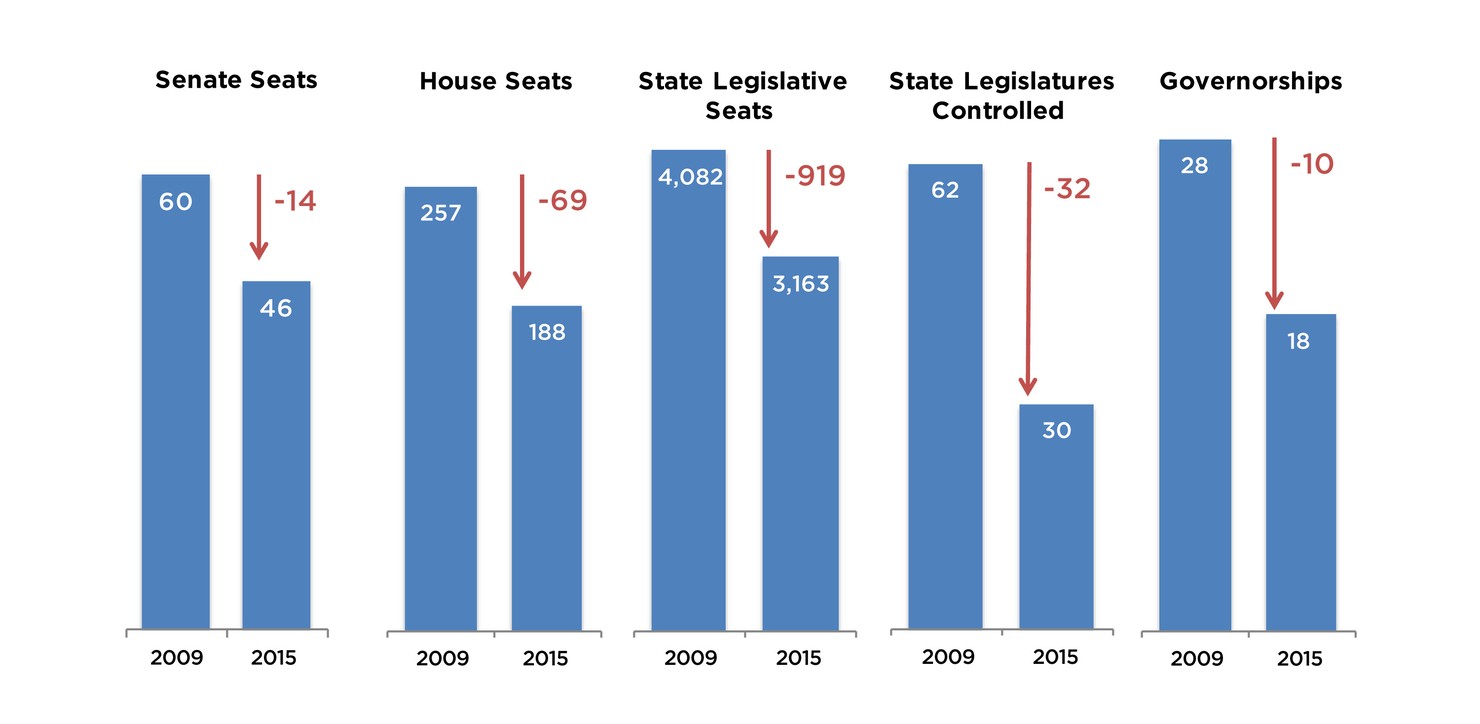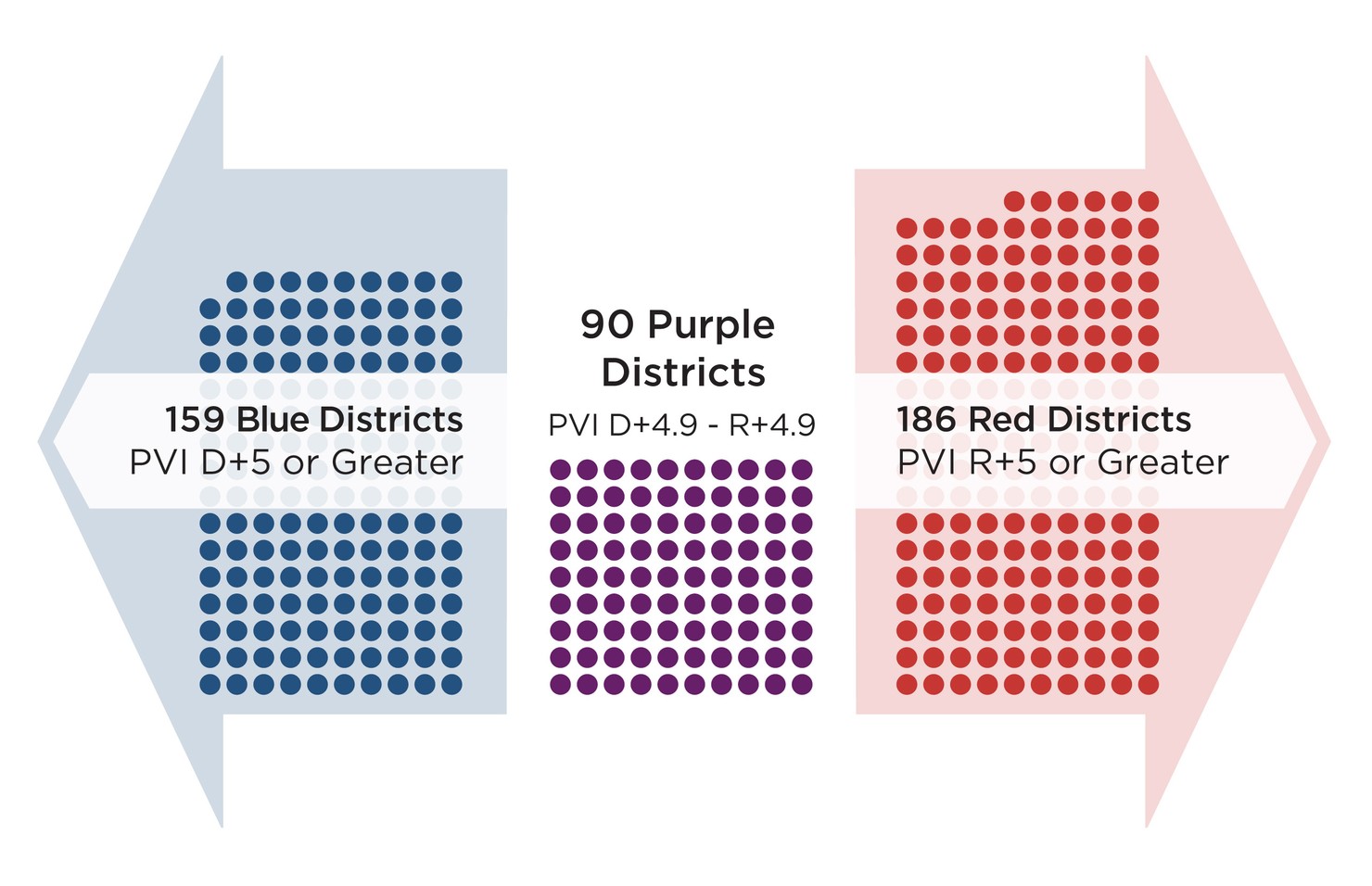E-Binder Published October 21, 2016 · Updated October 21, 2016 · 2 minute read
Better Know a Purple District
Michelle Diggles, Ph.D. & Tyler Cole
For several years, many have reasoned that demographic changes will yield an era of electoral success for the Democratic Party because it is winning diverse and growing constituencies. By that reasoning, Democrats should be winning up and down the ballot. But they weren't. After the last election, the party held fewer seats in the House, Senate, state legislatures, and governorships than at any point since 1928.

To understand the discrepancy between those who saw demography as electoral destiny and the Democratic losses down ballot, Third Way launched a major research project with a simple aim: identify the kinds of places that are electorally competitive (read: could deliver majorities to one or the other party) and understand why they vote for one party or another.

Focusing on The Cook Political Report’s swing districts, the project began with a deep demographic analysis of all 435 congressional districts, followed in 2015 by four rounds of qualitative research, including 15 focus groups. Then, we conducted a 2,000 person national survey to test the findings from that research. Michelle Diggles shares the results of that research in a Medium post on the project.
For the final phase, we selected three purple districts for an in-depth analysis of quantitative and qualitative data to better understand some of the most competitive—and potentially decisive—districts in the country. These district profiles focus on demographics, politics, and a media analysis of local issues.
Pennsylvania’s 8th Congressional District
Prototypical Northeastern swing district: white, suburban, and college-educated.
Wisconsin’s 8th Congressional District
Prototypical Midwestern swing district: white, suburban, and blue collar.
Colorado’s 6th Congressional District
Prototypical Western swing district: large Hispanic population, affluent, and suburban.
Each profile provides background information, political voting history, a demographic comparison between the swing district and safe Democratic and Republican congressional districts in the state, and an analysis of how political issues on the ground differ from or mirror hot topics in the national political conversation.

